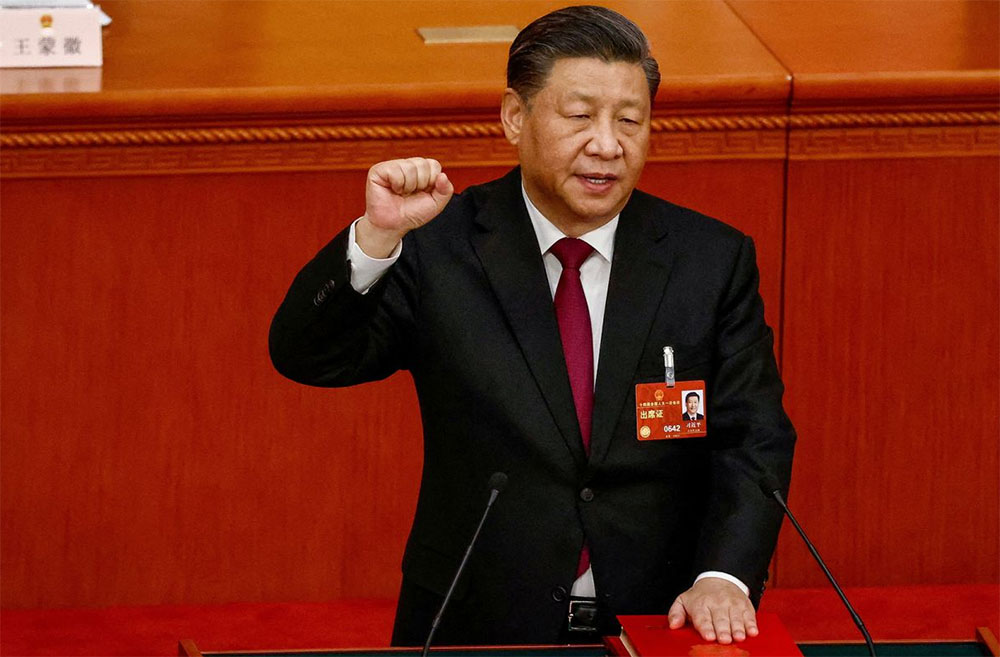Photo Credit: Getty Images
In a concerning development that echoes past incidents, prominent Chinese economist Zhu Hengpeng has vanished from public view after allegedly criticizing President Xi Jinping's economic policies in a private WeChat group. The Wall Street Journal reported on September 24, 2024, that Zhu, deputy director at the Chinese Academy of Social Sciences (CASS), was arrested following remarks that included veiled criticisms of Xi's leadership and China's struggling economy.
Zhu's last public appearance was in late April at a conference organized by Caixin, where he discussed elder care and proposed solutions to pension system deficits. His suggestions sparked debate on social media, with some users expressing concerns about additional financial pressures on young Chinese already grappling with rising living costs and weak job prospects.
The economist's disappearance is part of a broader pattern of silencing dissent in China. Jack Ma, co-founder of Alibaba Group Holdings, famously vanished from public view in 2020 after criticizing Chinese regulators. He only returned to public life in 2023, making appearances in various countries including Thailand, Japan, and Australia.
Zhu's case highlights the Chinese Communist Party's intensifying efforts to suppress negative discussions about the country's economic state. His name has been removed from online directories, including the CASS Institute of Economics' list of top officials and the academic committee roster of Tsinghua University's Center for Industrial Development and Environmental Governance (CIDEG).
The timing of Zhu's detention is significant, coming amidst growing concerns about China's economic slowdown. As a respected voice in health economics who had advised the government on healthcare policies, Zhu's critique likely struck a nerve with authorities eager to maintain a positive narrative about the country's economic trajectory.
This incident follows other high-profile disappearances in China, including tennis player Peng Shuai in 2021 and billionaire Xiao Jianhua in 2017. Amnesty International has reported on similar cases, such as the disappearances of activists Huang Xueqin and Wang Jianbing in September 2021, who were charged with "inciting subversion of state power."
The Chinese government's approach to dissent reflects a broader strategy of maintaining tight control over public discourse, especially regarding economic matters. As China navigates complex economic challenges, including a property sector crisis and youth unemployment, the silencing of critical voices like Zhu's raises questions about the country's ability to address these issues effectively.
As the international community watches closely, the fate of Zhu Hengpeng remains uncertain. His disappearance serves as a stark reminder of the risks faced by those who dare to challenge the official narrative in China, even in private conversations.


